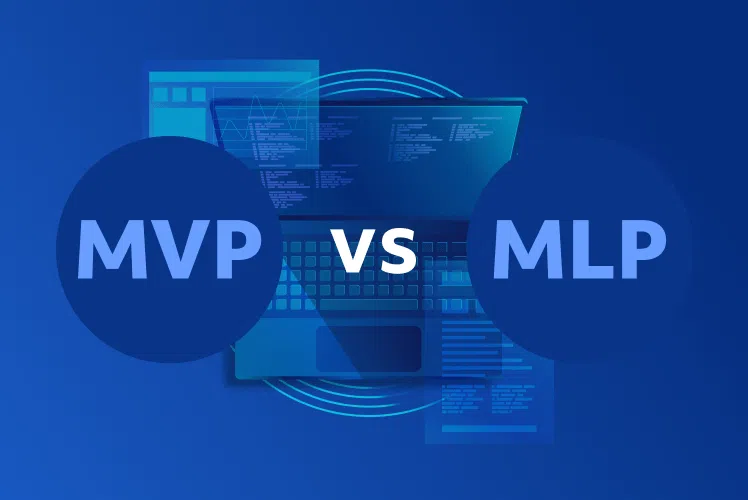Table of Contents
Globalization and the advancement of technology granted businesses all over the world a possibility to expand their talent pool, discover new business opportunities, and decrease their production costs while retaining high quality of products and services. All that can be achieved by either outsourcing or offshoring.
While having different meanings and approaches, these two terms get confused a lot. In order to help you choose the best option for your business and gain the maximal benefit from it, we will explain the exact difference between offshoring and outsourcing and the ways each can benefit your business.

The definition of outsourcing
Outsourcing means obtaining services from a third-party provider to complete or accompany the internal operations of your company. The simplest example of outsourcing would be hiring a design agency to assist you in developing a new product.
Note that outsourcing does not necessarily mean working with a provider from another country – in the case of outsourcing, the location of a third-party provider does not matter. What matters is the quality of services this provider offers and the way they match your business needs.
The top benefits of outsourcing
There are a few reasons why outsourcing is so popular. First is the cost of services. When comparing the cost of outsourcing with the cost of hiring and maintaining an in-house specialist (or a team of specialists), outsourcing turns out to be much more affordable. Mind the hidden costs though – there are several things to consider when getting ready to outsource certain processes.
The second reason is quality. Many third-party providers specialize in certain services and constantly master them. In this way, a company can get a high-quality service at an affordable price.
Finally, outsourcing offers great flexibility of operation. Companies and specialists that provide outsourcing services are usually very flexible in terms of working hours and days which can be a big plus (especially if you need to release a new product as soon as possible).

The definition of offshoring
Offshoring means moving a business process of your company to another country while retaining full control over it. Unlike outsourcing (which implies passing control to a third-party provider), offshoring allows you to keep control over all the processes.
The biggest reason why companies choose to offshore is that the performance of certain operations in a different country turns out much cheaper than its cost in the country of origin. As well, different countries have different (and often very favorable) tax policies which are another big reason for companies to offshore.
The top benefits of offshoring
As said above, offshoring offers a better cost for the production of certain goods and services. A popular example would be manufacturing car parts or hardware components for an American company in an Asian country such as Taiwan. As well, some countries offer very attractive tax and tariff regimes so a company might want to take advantage of them.
Last but not least – offshoring allows companies to retain full control over their operations, without the need to share policies, sensitive data, or granting access to a company’s database. While outsourcing might be a bit risky in terms of sharing a company’s data with a third-party provider, offshoring does not have such risks at all.
Comparing outsourcing and offshoring: the key differences
In order to better understand the differences between outsourcing and offshoring, we will compare them head to head and see the key features of each:
- Service provider: in case of outsourcing, there is a third-party service provider while offshoring implies that the company performs its own operations.
- Location: offshoring means moving the company’s operations to another country while outsourcing is independent of the geographical location.
- Cost of services: both options are quite favorable.
- Control over operations: when offshoring, you retain full control. In the case of outsourcing, you delegate certain operations to a third-party provider.
- Primary goal: when outsourcing, a company usually strives to get a high-quality service or product (and often at a cheaper price). In the case of offshoring, a company wants to cut down the costs and/or benefit from a local tax system.
As you see, despite having a few things in common, these two practices have significant differences as well.

Things to consider when choosing the best option
To help you make the right decision and choose the most suitable option for your business, we have listed down several things to consider that will impact your decision.
Project duration
For short-term services, outsourcing is a great option. It allows to quickly get everything done within a specified (and often quite short) time frame. An example would be hiring a freelance SEO specialist to help finetune your website and perform an audit.
As for offshoring, this usually implies having a long-term project that requires the investment of a significant amount of time and resources. The manufacturing of certain details or components on an ongoing basis is a good example.
Amount of control
If you want to perform quality assurance checks and closely monitor the process, then offshoring is your choice (since control over the project remains within a company). In the case of outsourcing, you will have to rely on a third-party provider in terms of quality and you will not be able to closely monitor the production process (though you might request regular reporting). We have actually discussed the biggest pitfalls of outsourcing in our blog and lack of quality monitoring is one of the issues mentioned in it.
Time-to-market
If you need to get everything done quickly, outsourcing is your choice due to its high flexibility and readiness of a provider to work on your project right after receiving a request. Offshoring, on the other hand, not only takes longer to realize the project but might also require additional training for the employees.
Final word
When choosing between outsourcing and offshoring, put your business goals in the first place and make the choice based on them. But note that if you opt for outsourcing, take your time to choose a reliable service provider with proven experience within the necessary domain. By conducting thorough research, you will be able to minimize the risks and receive guaranteed high quality of work.


Comments